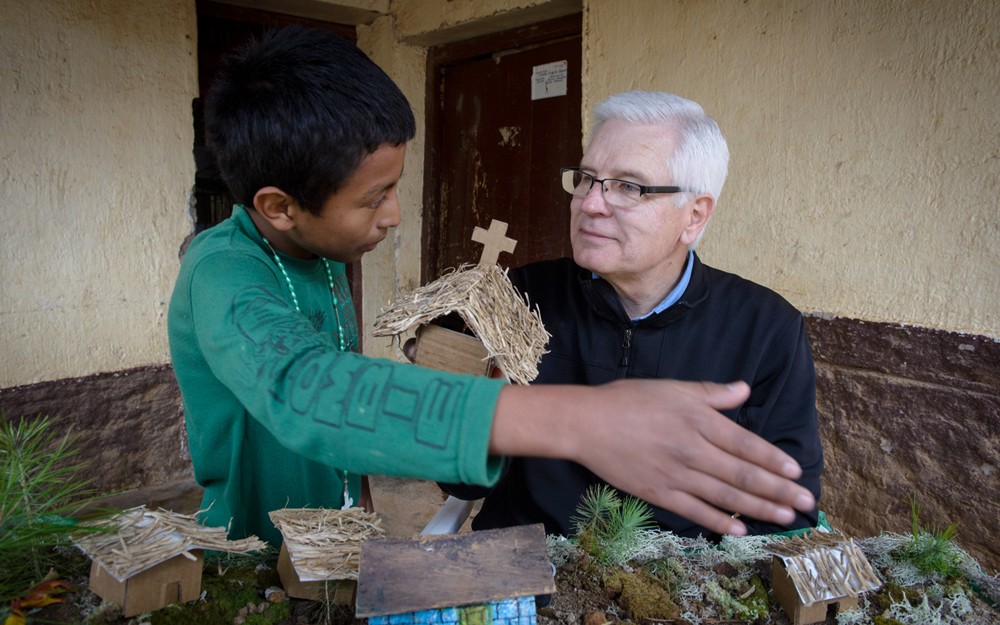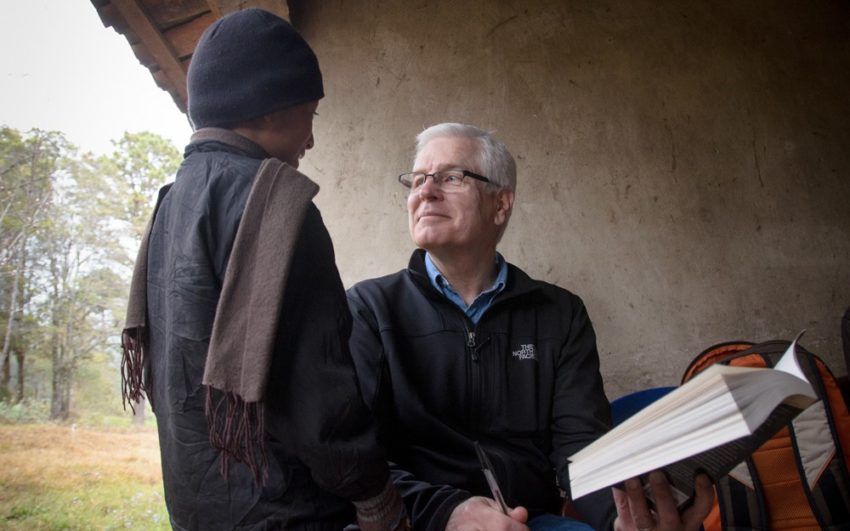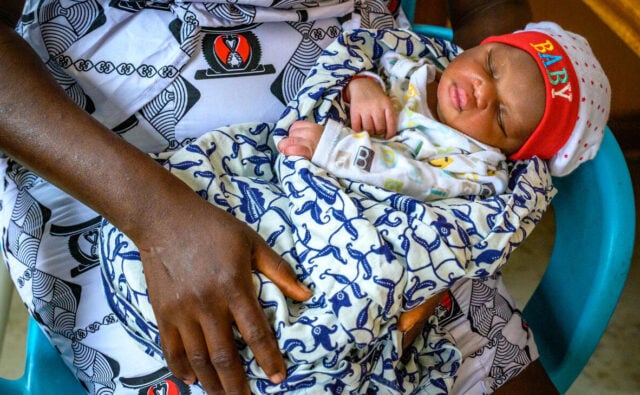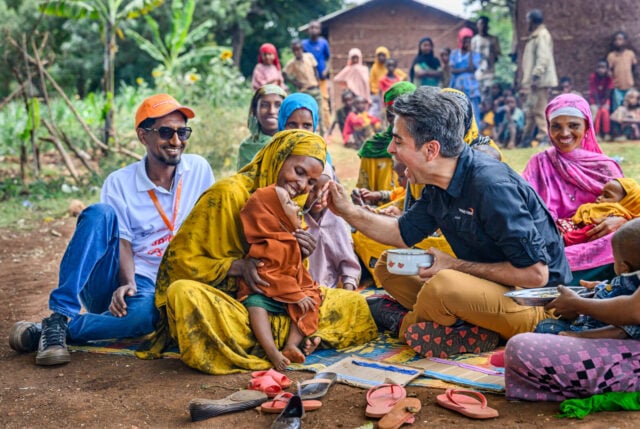When Rich Stearns finished writing “The Hole in Our Gospel,” he thought he was done writing books.
“We were all surprised by how well the book did, and several years later, I was still getting invitations to speak at events,” he says.
As he prepared for these speaking engagements, several ideas surfaced.
“One that really stuck with me was the question, ‘Why did Jesus leave after the resurrection?’” he says. “Having accomplished what he came to Earth to do, why didn’t Jesus finish all of history right then and there? Well, he gave the church a mission; it is now the church’s job to do the work of building the kingdom of God.”
This inspired him to write “Unfinished,” which builds on the themes of his first book, emphasizing the role Christians play in building God’s kingdom.
Do you consider “Unfinished” to be a sequel to “The Hole in Our Gospel?”
The “Hole in Our Gospel” is about my own story of coming to World Vision, and it’s a primer on global poverty. But the tagline for the book is “What does God expect of us?” God expects us to follow him, according to Jesus’ words in Matthew 25:35-36: “For I was hungry and you gave me something to eat, I was thirsty and you gave me something to drink, I was a stranger and you invited me in, I needed clothes and you clothed me, I was sick and you looked after me, I was in prison and you came to visit me.”
Whatever we do in our lives, whatever our occupation, our family, our hobbies — whatever we do should be in service to Jesus’ mission to build the kingdom of God.—Rich Stearns
So underlying the whole message of “The Hole in Our Gospel” is this idea of being obedient. As Christians, we have signed up; we have enlisted in Jesus’ mission, but have we gone to the front lines to finish the job Jesus has called us to? That’s really what I explore in “Unfinished.” It is a book about discipleship, about what God expects of us after we have declared our belief in him.
For me, being obedient to God’s call meant coming to World Vision. And for all Christians, it means demonstrating the gospel in tangible ways, feeding the hungry and caring for the sick. But the message of “Unfinished” goes beyond that. Whatever we do in our lives, whatever our occupation, our family, our hobbies — whatever we do should be in service to Jesus’ mission to build the kingdom of God.
In “Unfinished,” you lament that modern-day Christians have lost the “revolutionary” fervor of the early church. In a nutshell, how have we lost our way, and how can we get back on track?
We’ve lost sight of the forest for the trees. We forget about the bigger story of what God has called us to. Our focus gets stuck on the details of our Christian lives. We do our Bible studies and read Christian books, go to church, pray for ourselves and our friends and families. We listen to Christian music and sermons. But the big idea, that God is calling us to change the world, gets forgotten.
To return the church to Jesus’ revolutionary agenda, we need to understand God’s big story. We are redeemed through Christ in order to demonstrate to the world a new way to live. This is the revolution of the kingdom of God — and each of us is called to personally be a part of it. The first Christians overturned the Roman Empire and expanded across the globe. Today, we need to return to that original mission.
There is a lot of theology in the book. Why is it important to bring up these fundamental theological ideas?
I start the book with a chapter called, “The Meaning of Life and Other Important Things.” It is a very short work of apologetics. Now, there are people far smarter than me who say far more profound things than I do about the meaning of life. Perhaps that’s why my publisher and my agent both suggested I not include that chapter!
But I believe that we have to start at the beginning. I’m kind of a logical thinker. If we believe life is a big accident of carbon chemistry, then it doesn’t matter how we live. But if we think God created us for a purpose, well that changes everything. How we live our lives comes from how we think about these big questions.
Is it necessary to believe the right things in order to do the right things?
What we believe matters a great deal. If we believe there is no meaning or purpose in life, then we might as well do whatever makes us happy. But if we believe we have been created for a purpose, we have to discover what that purpose is, and we have to start living it out.
Now, a person who believes life is meaningless will still balance her checkbook just like a Christian does. There are a lot of other things that we will do just as anyone else will. You don’t have to be a Christian to help an old woman across the street.
However, what we believe about God will make a difference in the trajectory of our lives. It should make a difference in how and why we do things. As I said before, we are called to demonstrate a new way to live under God’s rule.

How would you describe a balanced approach between faith and works?
The Apostle Paul says it best. “For it is by grace you have been saved, through faith — and this not from yourselves, it is the gift of God — not by works, so that no one can boast. For we are God’s workmanship, created in Christ Jesus to do good works, which God prepared in advance for us to do” (Ephesians 2:8-10).
We are saved by grace for good works, which God has prepared for us. It isn’t enough to make a decision for Christ. We have to become disciples. That’s why the subtitle for “Unfinished” is “Believing Is Only the Beginning.”
Are you confident that if Christians continue Jesus’ work of building the kingdom of God on Earth, we can “turn the tide” of the world’s many ills and make it a better place?
“It is our job to do what [God] has called us to do, to feed the hungry, care for the sick, visit the prisoner, and demonstrate the new life God gives to us.—Rich Stearns
I prefer to think of the story of the Dutch boy who saw thousands of starfish washed onto the shore after a storm. He began throwing them back in the sea when someone asked if it would matter if he threw them back when so many thousands would die. So the boy threw another starfish back in the ocean and said, “It mattered to this one.”
We can let God manage the tides of history. It is our job to do what he has called us to do, to feed the hungry, care for the sick, visit the prisoner, and demonstrate the new life God gives to us. For those lives we touch, the world will be a better place.
After serving as president of World Vision U.S. for about 15 years, do you see evidence of the world becoming a better place?
I was in Honduras in January, and I saw a beautiful expression of the kingdom of God. A community ravaged by poverty, domestic abuse, alcoholism, and youth gangs had become a place where husbands loved their wives and children, taught the Bible to other families, and shared what they learned in World Vision health and agriculture programs. The churches were full. The change in this community was remarkable. That’s the story out of just one of our 4,500 sponsorship projects around the world.
For broader evidence, consider the remarkable decline in the number of children dying from preventable causes before their fifth birthday in the last 20 years. The number of children dying every day has dropped from around 35,000 to 19,000. That’s still an unacceptable number, but it is evidence that we can change the world. However, let me emphasize again that our job is to demonstrate the gospel to people, not necessarily to turn the tide of world history.
What one message do you want Christians in the U.S. to hear?
Many people see the Christian faith today as having less and less relevance in our society, especially when we look at the issues most Christians care about during election season. Christians are also worried about young people leaving the faith as more and more young adults claim no religious affiliation.
How should Christians respond? Are we relevant by having short, peppy sermons and coffee bars in church? By offering advice on living nice, comfortable lives? A better response is to call the church back to Jesus’ mission. We are to bring the whole gospel into the world, demonstrating a new, revolutionary way to live under God’s rule — living out the kingdom values of compassion, mercy, and justice. We don’t need to worry about so-called “Christian issues” at the polls when we are confidently following Christ’s call in every area of our lives today and inviting others to join us.
“Unfinished: Believing Is Only the Beginning” (Thomas Nelson) is available now in bookstores and online retailers. At Rich’s request, all royalties due to him will benefit World Vision’s work with children in need.
This fall, look for two more books from Rich and Thomas Nelson: “He Walks Among Us,” a devotional co-written his wife, Reneé, and a children’s storybook, “God’s Love for You,” which connects familiar Bible tales to stories from today’s children in World Vision communities.
World Vision U.S. President Rich Stearns is the author of The Hole In Our Gospel and Unfinished. Follow him at twitter.com/richstearns.


